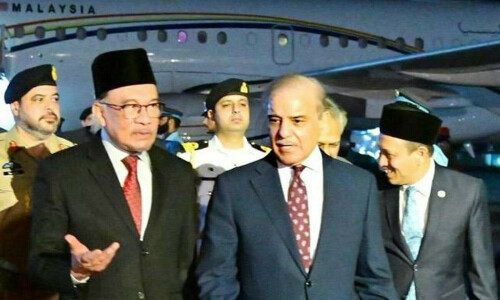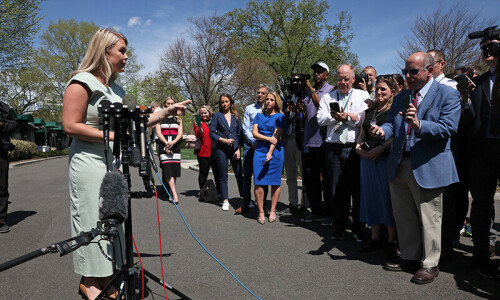After five tumultuous months, which included the aftermath of the bin Laden raid and a few rounds of Indo-Pak diplomacy, last week Hina Rabbani Khar was sworn-in as Federal Minister for Foreign Affairs. To many, Khar seemed an obvious choice, serving as Minister of State for Foreign Affairs without a Foreign Minister for the last five months and previously serving as Minister of State for Economic Affairs under both the Musharraf and Zardari governments. While hardly surprising, Khar’s appointment was historic as she became Pakistan’s first female Foreign Minister and currently, the youngest serving Foreign Minister in the world. Suffice to say, the reaction to Khar’s appointment, both at home and abroad have been mixed, with some hailing the new FM as an example for Pakistani women everywhere and others decrying Ms. Khar as ‘just another feudal’.
Whether a savior or the status quo, Khar has been followed by a monsoon of commentary following her every move – from her running of Polo Lounge in Lahore to her outfits and accessories, there is little about her that has failed to feed the media hype. As she crossed the Eastern border, the media’s fascination with her appeared to have snuck aboard her PAF jet, as newspapers across India analyzed her fashion and style, with one outlet calling her “a perfect combination of beauty and brains” (luckily for her, her style’s been judged much better than the infamous Clinton pantsuits of another nation’s top-diplomat). Interestingly, I’ve struggled to find anything focusing on the style rather than the statements of Shah Mehmood Qureshi or Khurshid M. Kasuri or any of our previous (male) Foreign Minister’s.
While the double-standard between male and female politicians worldwide is hardly new, the debate over whether Khar’s appointment is a victory for Pakistan’s women appears to be. In a recent article for Foreign Policy, Huma Imtiaz argues that appointing our first female Foreign Minister is hardly a cause for celebration, dismissing her electoral victory in the NA-177 seat as based “of her last name and feudal lineage” and arguing that “women MPs being elevated to positions of power has rarely translated into real action or change for the women of Pakistan.” Not having studied the electoral politics of the Muzzafargarh II seat in-depth, I would be amiss to comment on the role her last name may have played in her victory – or indeed if it played a different role than that of any Pakistani politician from a landholding background. Indeed, whether or not dynastic politics played a role in Ms. Khar’s election may have more to do with the nature of politics and elections in Pakistan rather than women’s empowerment.
With regards to women’s empowerment however, perhaps the simple act of having our country represented by a woman at global forums and playing a highly visible role can do more than imagined. A paper by Esther Duflo, an MIT Economics Professor and one of the founders of the highly renowned Jameel Poverty Action lab (J-PAL) and others explores this issue. The paper acknowledges that “exposure to women leader’s does not alter villagers’ taste preference for male leaders. However, it weakens stereotypes about gender roles in the public and domestic spheres and eliminates the negative bias in how female leaders’ effectiveness is perceived.” Providing visible female role models in Pakistan can thus yield enormous benefits not only by inspiring the next generation of Pakistani women but also by dispelling stereotyped gender roles.
This is crucial to tackle another aspect of the double standard for male and female legislators – getting different marks for the same results. Studying the effectiveness of village councils in rural India after a quota for women’s participation was introduced, other research by Duflo and Petia Topalova found that “villages reserved for women leaders have more public goods” at a comparable quality, yet “residents of villages headed by women are less satisfied with the public goods”. Thus even when provided with more services at comparable quality, the villagers were less happy with the service than those in other villages led by men.
Pakistan has been making progress towards increasing female participation, and currently ranks 46th in the world with 22.2 per cent of the seats in the National Assembly and Senate filled by women. However, given that 17 per cent of the Senate and 18 per cent of the National Assembly is reserved for women, the 22.2 per cent of representatives quickly shrinks to between four and five per cent of elected representatives. Given the dearth of highly-visible, elected female politicians that can contribute to the national discourse and shape policies and priorities, perhaps when photos of Hina Rabbani Khar’s return from India are splashed across the nation’s media, we should focus on the peace process – and not her purse.

The views expressed by this blogger and in the following reader comments do not necessarily reflect the views and policies of the Dawn Media Group.













































